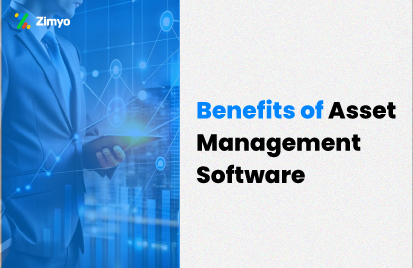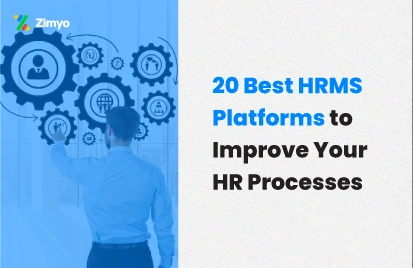Finding the right HR software for startups can be challenging. Startups need a solution that is not only easy to use but also powerful enough to handle payroll, performance, attendance, and employee engagement. With so many options available, choosing the best HR software for startups or human resource management software for startups can feel overwhelming.
In this blog, we’ll explore the 10 Best HR Software for Startups, including global favorites and emerging solutions like Zimyo, highlighting their unique features, pros, and cons. Whether you are looking for HRIS for startups, HR and payroll software for startups, or payroll management software for startups, this guide will help you make an informed decision.
List of the 11 Best HR Software for Startups
Here is the list of the 11 Best HR Software for Startups:
- Zimyo
- HiBob
- BambooHR
- Rippling
- Gusto
- Deel
- Personio
- Culture Amp
- 15Five
- Leapsome
- Freshteam
Now, let us throw light on each of these HR Software in detail.
11 Best HR Software for Startups: Explained in Detail
1. Zimyo
Founded in 2018, Zimyo is an emerging HR and payroll software provider based in India. It offers a comprehensive Human Resource Information System (HRIS) designed to streamline HR processes for startups and small to medium-sized businesses. Zimyo’s platform integrates various HR functions, including payroll, attendance, performance management, and employee engagement, into a single solution.
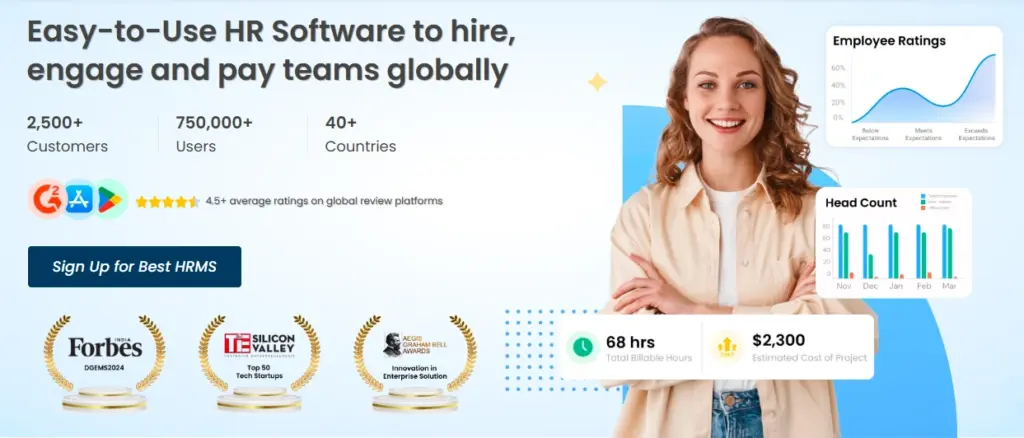
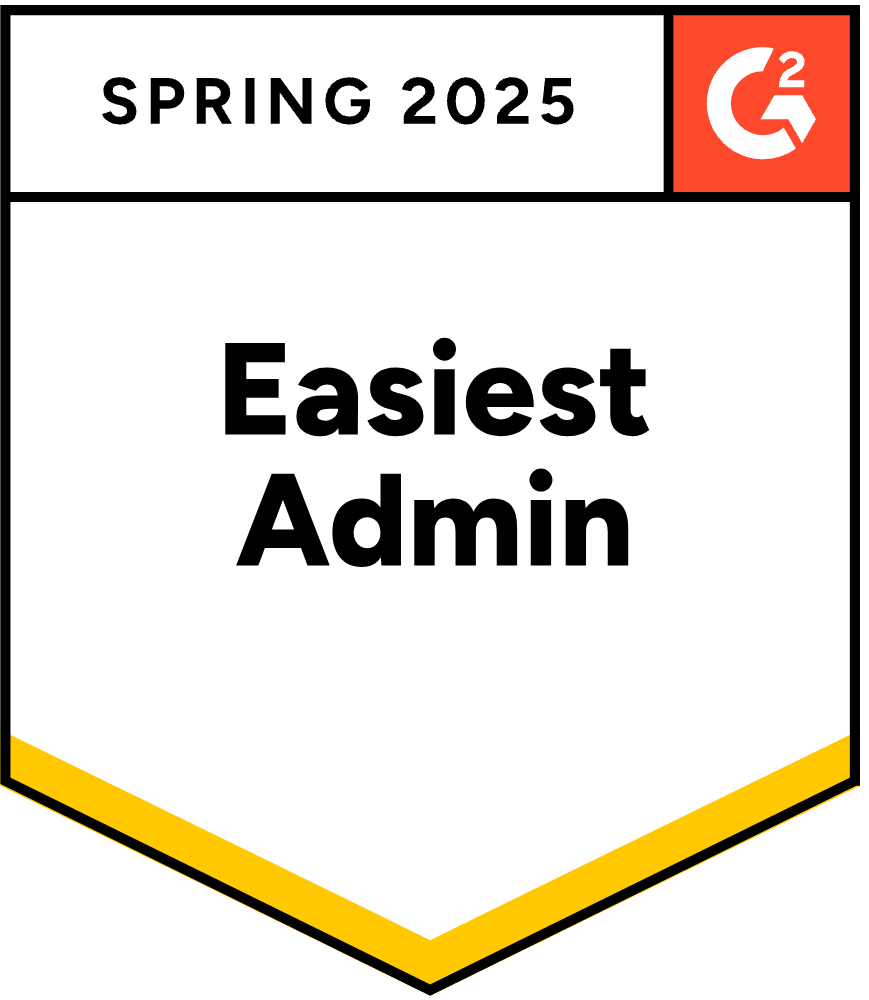
Uniquely Different Features
- AI-Driven Automation: Automates repetitive HR tasks, enhancing efficiency and reducing errors.
- Unified Platform: Integrates HR, payroll, and performance management into one system.
- Employee Self-Service Portal: Allows employees to access payslips, tax forms, and leave balances independently.
- Customizable Salary Structures: Offers flexibility in defining salary components and salary structures.
- Multi-Currency and Multi-Region Support: Facilitates payroll processing for global teams.
Pros and Cons
Pros | Cons |
AI-driven automation reduces manual effort | May require time for full adoption |
Comprehensive HR functions in one platform | Limited presence in large enterprise market |
User-friendly interface | Fewer global compliance features (still expanding) |
Affordable pricing for small businesses | Smaller partner ecosystem compared to larger HRMS providers |
2. HiBob
HiBob, founded in 2015, is an Israeli-based company that offers a modern HRIS for startups. It focuses on providing scalable and user-friendly solutions for growing businesses.
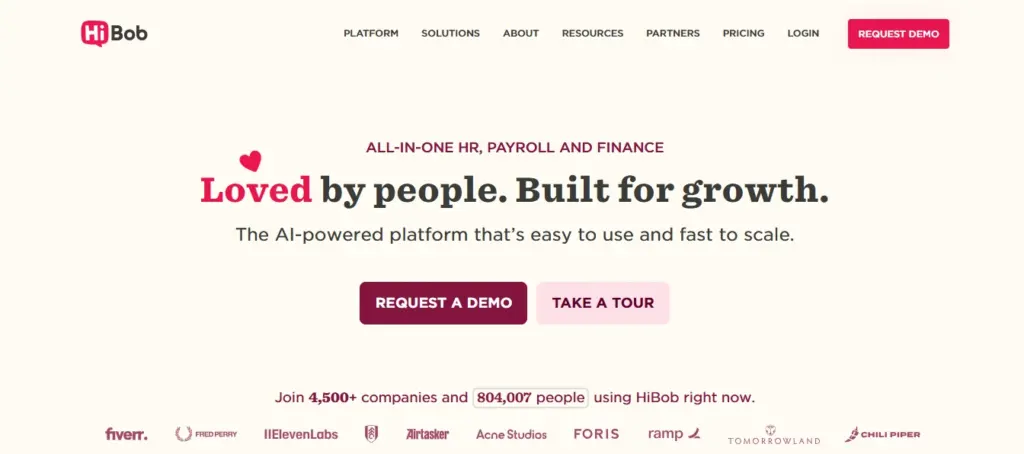
Uniquely Different Features
- People Analytics: Advanced data insights to inform HR decisions.
- Automated Workflows: Streamlines HR processes for efficiency.
- Employee Engagement Tools: Features like shout-outs and surveys to boost morale.
Pros and Cons
Pros | Cons |
Intuitive user interface | May require time for full adoption |
Scalable for growing teams | Some advanced features may be complex |
Strong analytics capabilities | Limited customization options |
Check out the Top HRIS Systems for Large Companies. Here, you’ll find the Enterprise-Ready Solutions for 2026.
3. BambooHR
Established in 2008, BambooHR is a U.S.-based company known for its comprehensive HR software for startups, catering to small and medium-sized businesses.
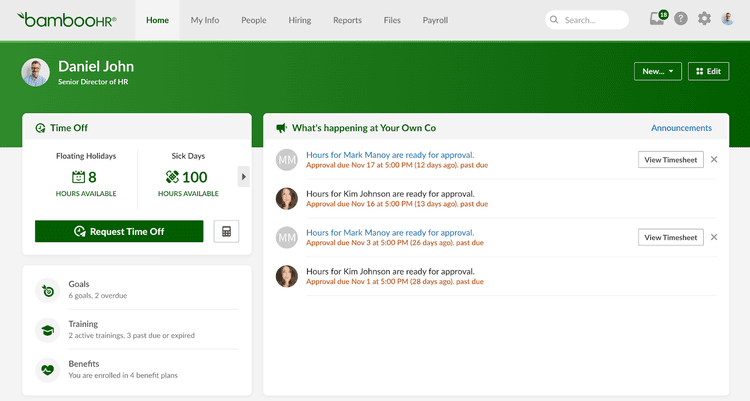
Uniquely Different Features
- Compensation Plan Management: Tools for salary benchmarking and planning.
- Employee Experience Tools: Features to enhance workplace culture.
- Mobile Access: Allows employees to manage HR tasks on the go.
Pros and Cons
Pros | Cons |
User-friendly interface | Limited advanced HR analytics |
Strong onboarding and performance tools | Payroll integration requires add-on |
Excellent customer support | Some features may be redundant for smaller teams |
According to IndustryResearch.biz, more than 3,200 HR tech startups were operating globally in 2024. About 62% of them used cloud-based HR platforms to deliver scalable and cost-effective solutions.
4. Rippling
Founded in 2016, Rippling is a U.S.-based platform that integrates HR systems for startups with IT and finance functions, offering a unified solution.
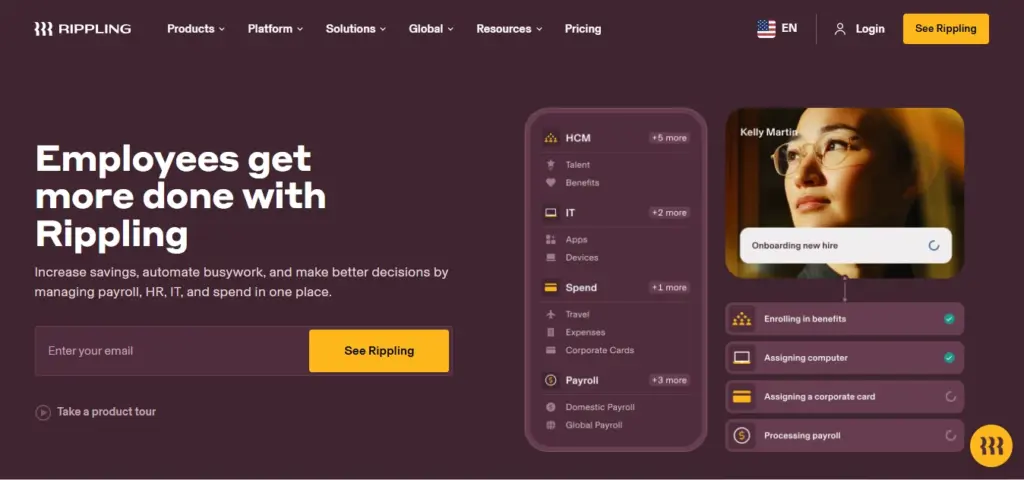
Uniquely Different Features
- Unified Platform: Combines HR, IT, and finance in one system.
- Automated Compliance: Ensures adherence to regulations across departments.
- Customizable Workflows: Tailors processes to specific business needs.
Pros and Cons
Pros | Cons |
Comprehensive integration capabilities | Can be overwhelming for small teams |
Streamlines multiple business functions | Higher cost compared to some competitors |
Scalable for growing businesses | Initial setup may be complex |
Check out the Best HR Software for Small Businesses list.
5. Gusto
Gusto, founded in 2011, is a U.S.-based company specializing in HR and payroll software for startups, focusing on simplifying payroll and benefits administration.
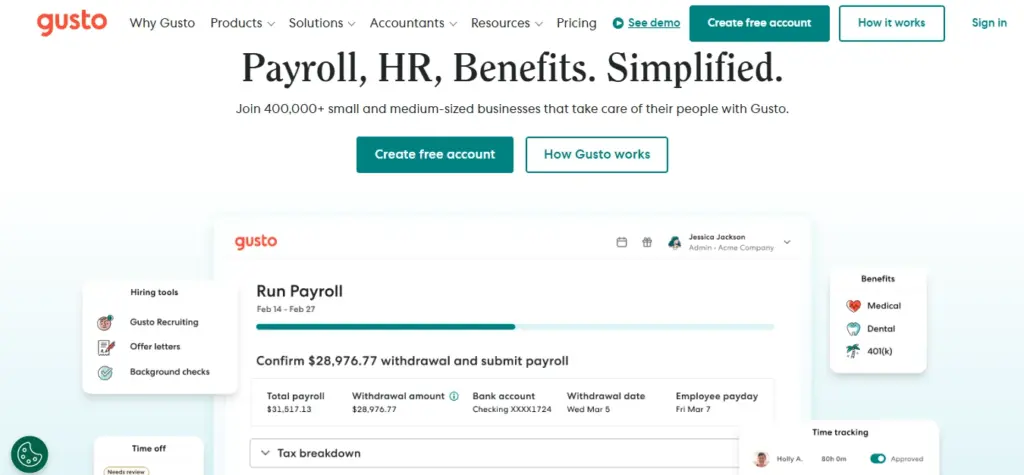
Uniquely Different Features
- Automatic Tax Filing: Handles federal, state, and local taxes.
- Employee Benefits Administration: Manages health insurance and retirement plans.
- User-Friendly Dashboard: Simplifies HR tasks for small businesses.
Pros and Cons
Pros | Cons |
Simplifies payroll and benefits | Limited HR analytics features |
Excellent customer support | Some features may be basic for larger teams |
Affordable pricing for small businesses | Limited customization options |
6. Deel
Deel, founded in 2018, is a U.S.-based company that offers payroll management software for startups, specializing in global compliance and remote team management.
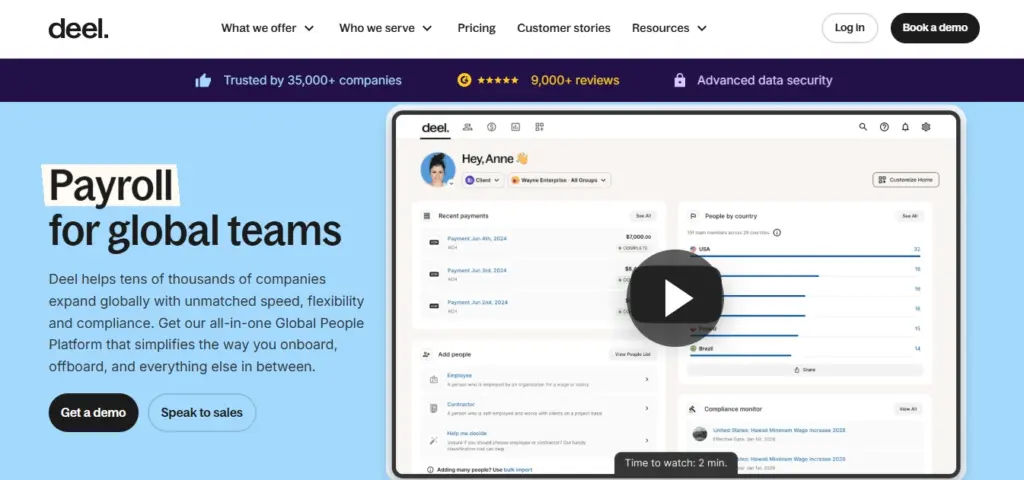
Uniquely Different Features
- Global Payroll Solutions: Manages payroll in over 150 countries.
- Contractor Compliance: Ensures legal adherence for international contractors.
- Automated Payments: Facilitates seamless cross-border transactions.
Pros and Cons
Pros | Cons |
Simplifies global payroll management | May not be necessary for local teams |
Ensures compliance across borders | Limited HR features beyond payroll |
Supports remote and distributed teams | Higher fees for international transactions |
7. Personio
Established in 2015, Personio is a Germany-based company providing an HRIS for startups, focusing on aligning HR processes for small and medium-sized businesses.
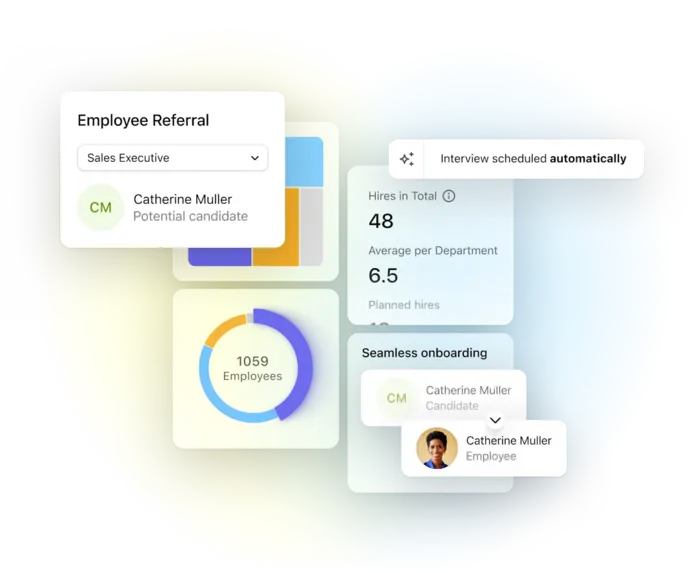
Uniquely Different Features
- Centralized Employee Database: Securely stores personnel records.
- Automated HR Processes: Organizes tasks like onboarding and time tracking.
- Compliance Management: Ensures adherence to data protection laws.
Pros and Cons
Pros | Cons |
Comprehensive HR management features | Limited customization options |
User-friendly interface | Some features may require additional training |
Strong compliance and security measures | Higher cost for smaller teams |
8. Culture Amp
Founded in 2011, Culture Amp is an Australia-based company specializing in employee engagement and performance management software for startups.
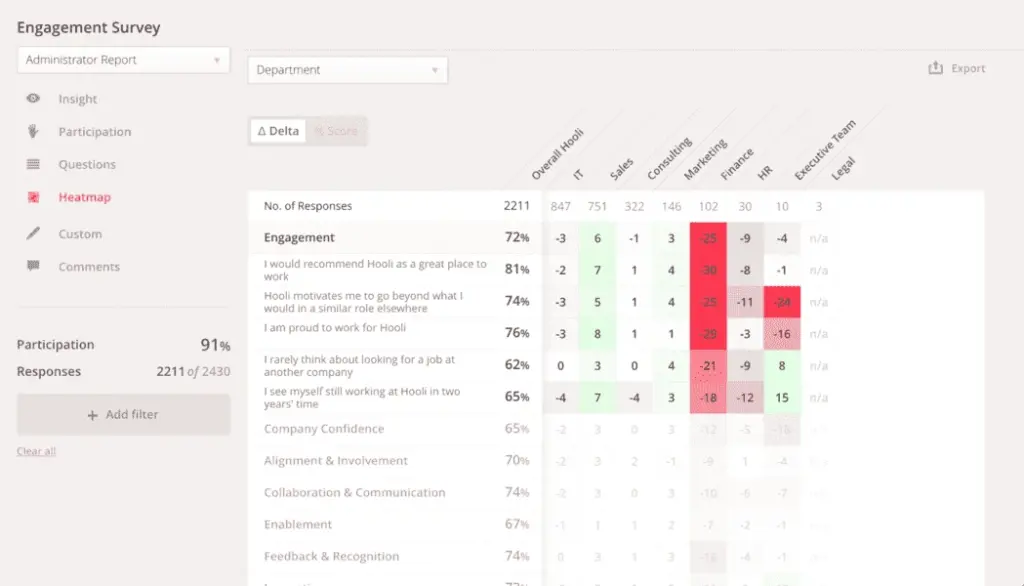
Uniquely Different Features
- Advanced Analytics: Provides insights into employee engagement and performance.
- Benchmarking Tools: Compares results against industry standards.
- Actionable Feedback: Converts data into strategies for improvement.
Pros and Cons
Pros | Cons |
Deep insights into employee engagement | May be complex for small teams |
Facilitates data-driven decision making | Higher cost compared to some competitors |
Supports continuous improvement initiatives | Requires time to analyze and act on data |
According to GlobalGrowthInsights, the global HR Tech Startups market size was valued at USD 26,014.67 million in 2024 and is projected to reach about USD 43,727.85 million by 2033, with a CAGR of ~5.94%.
9. 15Five
15Five, founded in 2011, is a U.S.-based company offering performance management software for startups, focusing on continuous feedback and employee development.
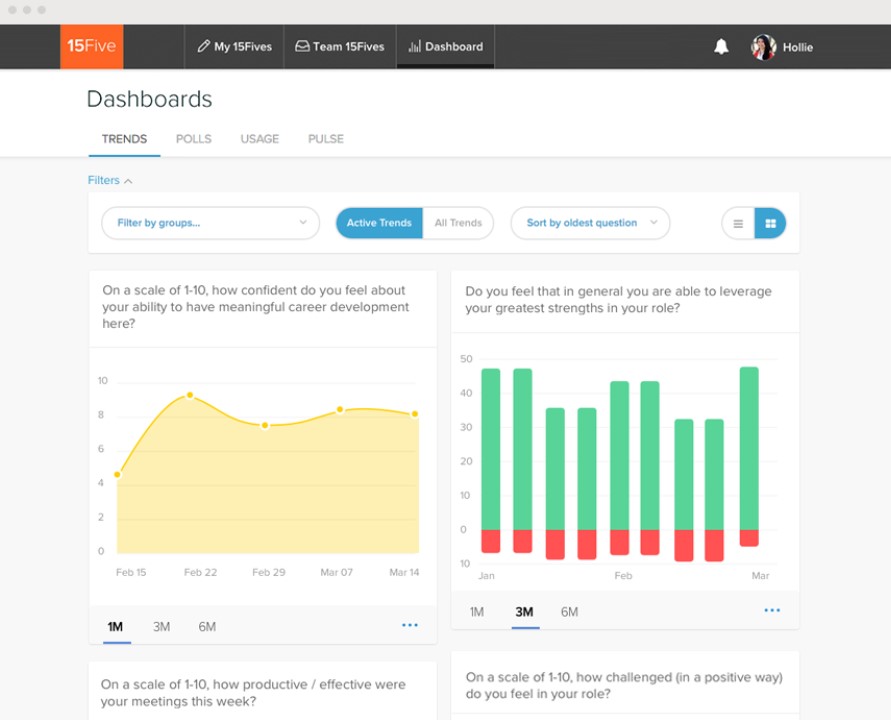
Uniquely Different Features
- Weekly Check-Ins: Employees provide regular updates to managers.
- Goal Tracking: Aligns individual goals with company objectives.
- Recognition Tools: Facilitates peer-to-peer recognition and feedback.
Pros and Cons
Pros | Cons |
Encourages continuous feedback | May be time-consuming for managers |
Aligns individual and company goals | Limited HR functionalities beyond performance |
Enhances employee development | Requires consistent participation |
10. Leapsome
Leapsome, founded in 2016, is a Germany-based company providing an HR software for startups, focusing on performance management and employee development.
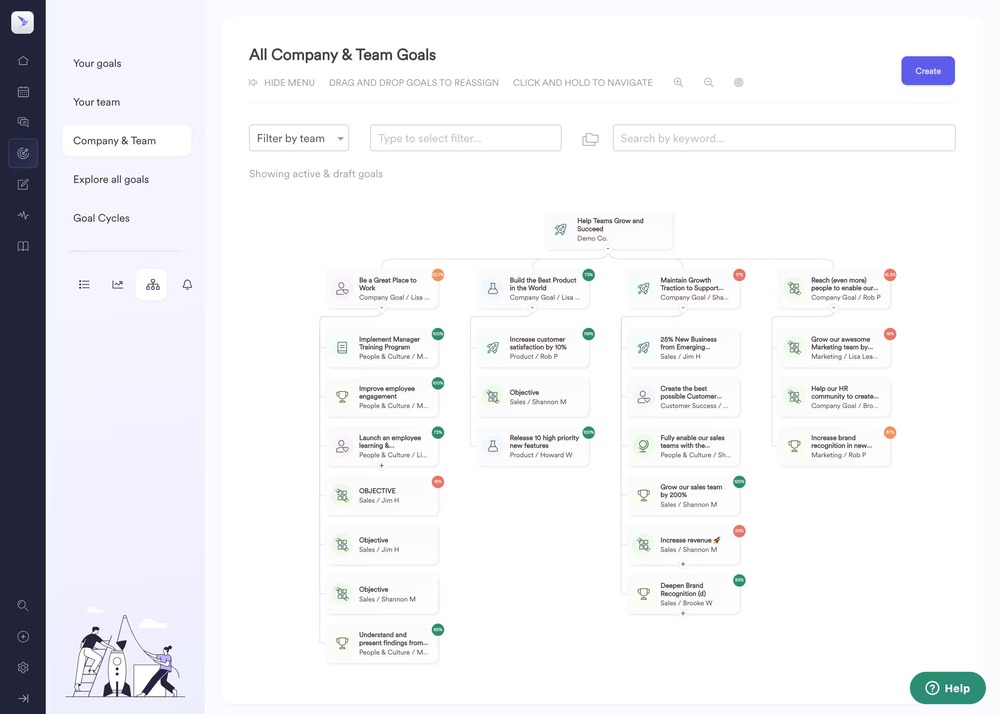
Uniquely Different Features
- 360-Degree Feedback: Gathers comprehensive feedback from multiple sources.
- Learning & Development Tools: Supports employee growth and skill development.
- Customizable Performance Cycles: Tailors evaluation processes to company needs.
Pros and Cons
Pros | Cons |
Supports employee development | May require time to implement fully |
Customizable performance management | Some features may be complex for small teams |
Enhances feedback culture | Higher cost for smaller businesses |
11. Freshteam
Freshteam, founded in 2017, is an India-based company offering HR software for startups, focusing on recruitment and onboarding processes.
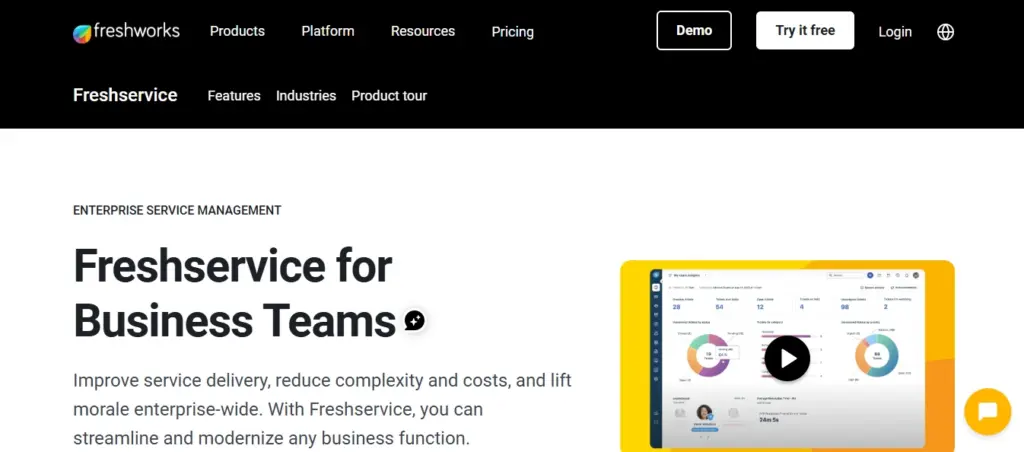
Uniquely Different Features
- Applicant Tracking System (ATS): Streamlines the hiring process.
- Employee Onboarding: Facilitates smooth integration of new hires.
- Time-Off Management: Manages leave requests and approvals.
Pros and Cons
Pros | Cons |
Simplifies recruitment processes | Limited HR functionalities beyond hiring |
User-friendly interface | May lack advanced HR analytics |
Affordable pricing for startups | Limited customization options |
Why do Startups need HR Software?
Startups need HR software because managing people and HR tasks manually can get messy fast. Even a small team has things like salaries, leaves, attendance, and performance to track. Using human resources software for startups makes all this easier.
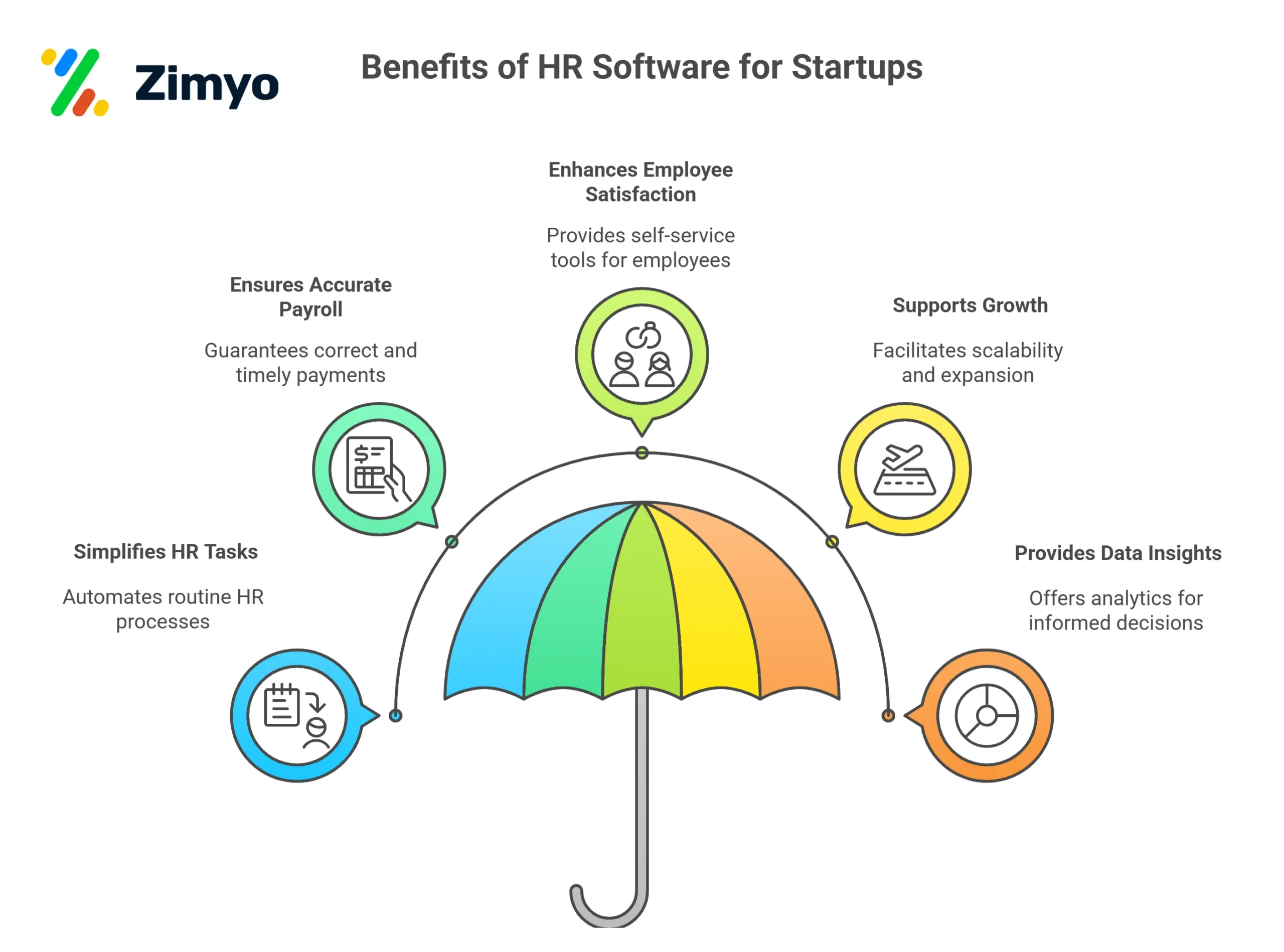
Let us understand each one of these in detail.
1. Makes HR Tasks Easy
Tracking leave, attendance, and payroll manually takes a lot of time. HR software for startups automates these tasks so the team can focus on work that matters.
2. Pays Employees Correctly
Mistakes in salaries or taxes can be costly. HR and payroll software for startups makes sure everyone gets paid right and on time, and keeps the company following the law.
3. Keeps Employees Happy
Employees can check their payslips, leave balance, and performance themselves. HRIS for startups makes work smoother and keeps people engaged.
4. Helps Startups Grow
As the team grows, managing HR manually becomes harder. Best HR software for startups helps with hiring, onboarding, performance, and reports, so the company can grow without stress.
5. Gives Useful Data
Modern HR systems for startups show useful info like attendance, performance, and satisfaction. This helps leaders make better decisions.
In short, startups need HR software for startups to save time, avoid mistakes, keep employees happy, and grow faster.
Step-by-Step Process for Startups to Choose the Best HR Software
Choosing the right HR software for startups can be overwhelming, but following a clear process makes it easier to find the perfect fit for your team.
Step 1: Identify Your HR Needs
Start by listing all the HR tasks you need help with: payroll, attendance tracking, employee onboarding, performance management, recruitment, compliance, and engagement. Knowing your exact needs will help you pick the right HR software for startups.
Step 2: Decide on Must-Have Features
Not all HR software is the same. For startups, look for essential features like:
- Payroll automation (HR and payroll software for startups)
- Attendance and leave tracking
- Performance management and goal tracking
- Employee self-service portal
- Recruitment and onboarding tools
Extra features like analytics, multi-location support, or AI automation can be added if your startup is scaling fast.
Step 3: Consider Budget & Pricing
Startups usually have tight budgets. Compare pricing models – monthly, per employee, or tiered plans. Choose a human resource management software for startups that offers flexibility without overspending.
Step 4: Check Ease of Use
Your HR team might be small or even just one person. Choose HR software for startups that is easy to set up and simple to use. A complicated system can slow your team down.
Step 5: Evaluate Integration Capabilities
Ensure the software can integrate with tools you already use, like accounting systems, communication apps, or project management tools. HRIS for startups that connects with other software reduces duplication and errors.
Step 6: Look for Scalability
Choose a solution that grows with your startup. As you hire more employees, your HR systems for startups should handle more data, more processes, and more locations without needing a complete switch.
Step 7: Check Compliance & Security
Startups must follow labor laws and protect employee data. Make sure the best HR software for startups ensures compliance with local regulations and keeps sensitive information secure.
Step 8: Read Reviews & Compare Providers
Look at reviews, case studies, and customer testimonials. Compare HR software for startups like Zimyo, BambooHR, or Gusto to see which one fits your startup’s culture and workflow.
Step 9: Test with a Free Trial or Demo
Most HR software for startups offers free trials or demos. Use this to test features like payroll management, leave tracking, and performance reviews before committing.
Step 10: Make Your Decision
After testing, evaluating features, budget, usability, and scalability, select the HR and payroll software for startups that best matches your startup’s current and future needs.
By following these steps, your startup can select the best HR software for startups that saves time, ensures compliance, improves employee experience, and supports growth.
Conclusion
Choosing the right HR software for startups is essential for managing payroll, attendance, performance, and employee engagement efficiently. The 10 Best HR Software for Startups we discussed, including global favorites and emerging platforms like Zimyo, offer unique features to make HR tasks easier, save time, and support growth.
Whether you are looking for human resource management software for startups, HRIS for startups, or HR and payroll software for startups, investing in the right solution can help your startup run smoothly, keep employees happy, and scale faster.
Frequently Asked Questions (FAQs)
What is HR software for startups?
HR software for startups is a digital tool that helps manage employee information, payroll, attendance, performance, and engagement. It makes HR tasks simpler and faster for growing teams.
Why do startups need human resources software for startups?
Startups need human resources software for startups to save time, reduce errors in payroll and compliance, track performance, and improve employee satisfaction.
What features should the best HR software for startups have?
Key features include payroll management, attendance tracking, employee self-service, performance management, onboarding tools, and data analytics.
What is an HRIS for startups?
HRIS for startups (Human Resource Information System) is software that centralizes employee data, automates HR tasks, and provides reports to help make HR decisions.
Can HR software for startups handle payroll?
Yes, the best HR and payroll software for startups can manage payroll calculations, tax compliance, and salary disbursement efficiently.
How does HR software for startups help with employee engagement?
It provides tools like performance reviews, feedback, recognition, and surveys to keep employees motivated and engaged.
Is HR software for startups suitable for small teams?
Absolutely. Many HR systems for startups are designed for small teams, making HR tasks easy without needing a large HR department.
Can HR software for startups help with recruitment?
Yes, many HR software for startups include features like applicant tracking, onboarding, and automated hiring workflows.
How does HR software for startups support company growth?
By automating HR tasks, tracking performance, and providing data insights, HR software for startups helps companies scale smoothly without adding HR overhead.
Is Zimyo considered one of the best startups HR software?
Yes, Zimyo is a popular HR software for startups that combines payroll, performance management, and employee engagement in a single platform.



